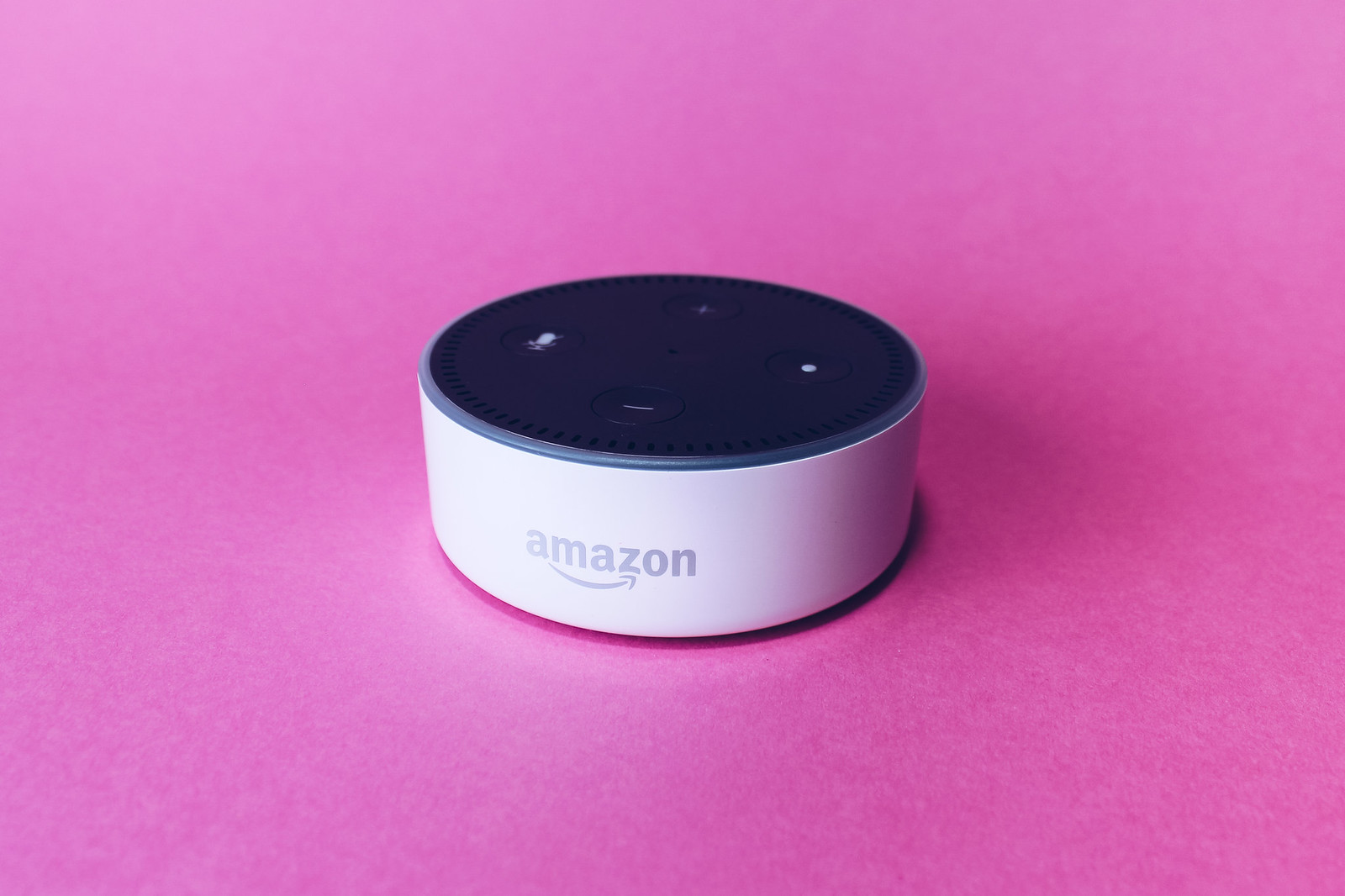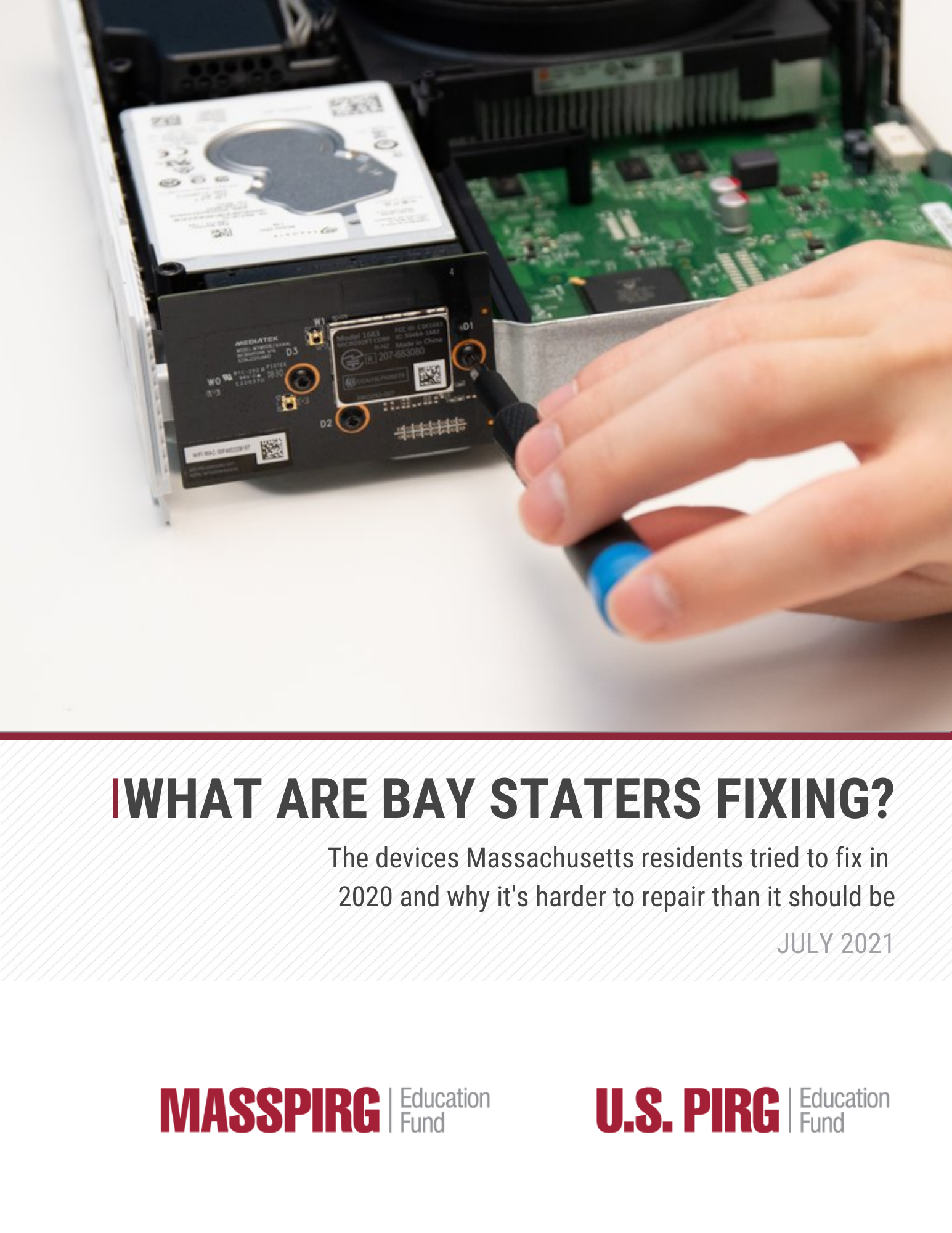
What Bay Staters are Fixing
“What Bay Staters are Fixing,” reveals how Massachusetts ends up with millions of pounds of avoidable electronic waste and the Right to Repair campaign’s efforts to remedy that situation. Furthermore, the report examines how the COVID-19 pandemic exposed obstacles that face Massachusetts consumers who try to fix their products affordably and on their own terms. Describing the Right to Repair as “good for our pocketbooks and good for the planet,” the report’s authors spotlight the financial and ecological benefits of expanded consumer rights.

MASSPIRG
EXECUTIVE SUMMARY
Here in Massachusetts, we want to fix our stuff – even during the COVID-19 pandemic.
As people venture back out into public society and tentatively create “new normals,” it’s more important than ever that our home appliances and devices are working. From kitchen appliances to laptops, gaming systems and televisions, our tech has helped us stay safe and sane as we navigate this new stage of the pandemic.
But inevitably, things break or malfunction. You could throw it away, but don’t want to be wasteful, and money is tight in this economy. In addition, due to supply chain disruptions and store closures, you might have had difficulty finding some devices to buy, especially in the spring and summer of 2020. Instead, you try to get your device fixed or to fix it yourself.
According to a review of data from iFixit, which describes itself as the “repair guide for everything, written by everyone,” over 2 million unique users from Massachusetts went to www.iFixit.com to look up how to repair something in 2020.
Of those visitors, the top ten device types that Bay Staters attempted to fix were cell phones, laptops, automobiles, gaming consoles, tablets, vacuums, desktop computers, smart watches, appliances, and gaming controllers. Cell phone repair guides were the most popular, receiving 23 percent of all the page views. Laptops came in second, receiving 17 percent.
According to the repair shop owners and repair industry experts we interviewed, the pandemic also changed which devices we took to repair shops. We interviewed ten repair shop owners, seven of which reported an increase in business during the pandemic. They repaired more gaming consoles and computers than normal, and their customers were eager to get their devices fixed quickly.
Repair cuts waste, saves consumers money, and also promotes resilience that helps us manage a pandemic. Even as repairing our devices for learning and working became critical to staying safe, 7 of the top 10 most popular manufacturers of devices that Bay Staters were trying to fix restrict access to parts and service information – including the top four. Repair is popular, but the devices we most want to fix restrict access to what we need, underscoring the importance of Right to Repair reforms.
With his July 9 executive order, President Joe Biden championed Right to Repair reforms by encouraging the Federal Trade Commission to limit, “manufacturers from barring self-repairs or third-party repairs of their products.”
Topics
Find Out More


Junk fees should be banned, U.S. PIRG tells FTC

How to use iPhone privacy settings 2024

